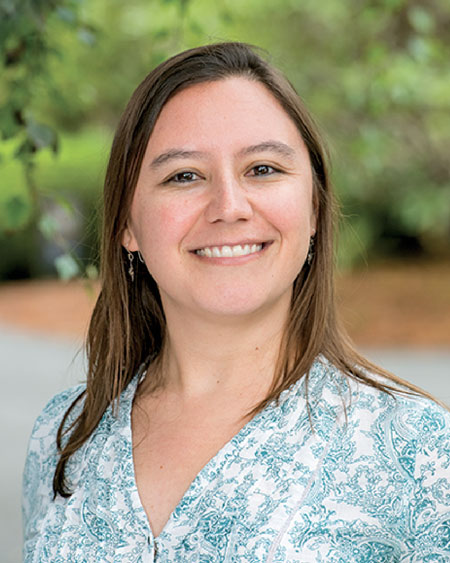Prestigious $949,000 NSF Grant to Study Microbes Will Open Doors for Underrepresented STEM Students
By Aileen S. Yoo

Professor Catalina Cuellar-Gempeler
MICROBES ARE ALL AROUND US—in the air, our water, the earth, even our gut (think “good” bacteria)—and grow within all living things.
What happens when microbes originating from one host migrate to another? Why does this matter? Humboldt State University students will explore these questions thanks to a prestigious $949,000 National Science Foundation (NSF) grant awarded to Biology Professor Catalina Cuellar-Gempeler.
Over the next five years, the grant will support Cuellar-Gempeler’s research on the effects of colonizing microbes on carnivorous plants.
Carnivorous plants depend on microbial communities of the insects they capture to get nutrients. The grant will fund Cuellar-Gempeler’s research into how these plants maintain their digestive function despite hosting different types of microbes. These findings may inform how to maintain ecosystem functions that are critical for life and advance our understanding of the microbiome—microbes that live inside and around us—and its role in human health and agriculture.
Beyond focusing on the small things in life, Cuellar-Gempeler is also determined to pave the way for a new and more diverse generation of scientists who specialize in ecology, molecular biology, and bioinformatics.
“A large portion of this grant will support applied research in a way that educates and mentors students at HSU, which is a Hispanic-Serving Institution,” says Cuellar-Gempeler, who has taught at HSU since 2018. “I want to capitalize on the growing diversity of college students. I love the diversity of our campus—that’s why I came to HSU.”
Cuellar-Gempeler says that oftentimes Latinx students don’t see themselves represented in the sciences, she says, and when they do, it’s a powerful and inspiring moment of recognition.
“I’m an immigrant from Colombia, and I’ve had students tell me that I’m the first professor they’ve had who speaks Spanish. What that shows them is you can come from a different culture and be as much of a scientist as everyone else. It can be an emotional realization that helps students see a clearer path to achieving their dreams,” she recalls. “It’s great to have a common connection with students who are committed to their education.”
Cuellar-Gempeler’s microbe project will focus on practical experience. Hundreds of students, including 60 paid undergrad and graduate students, will explore key concepts of ecology through various practices such as growing microbes, isolating and measuring what they do, and learning how to sequence DNA.
“Students will have a broader ecological perspective and current skills to succeed in the job market,” she says.
VIDEO: Watch Biology Professor Catalina Cuellar-Gempeler communicate science through song: hsu.link/thefrogsong.